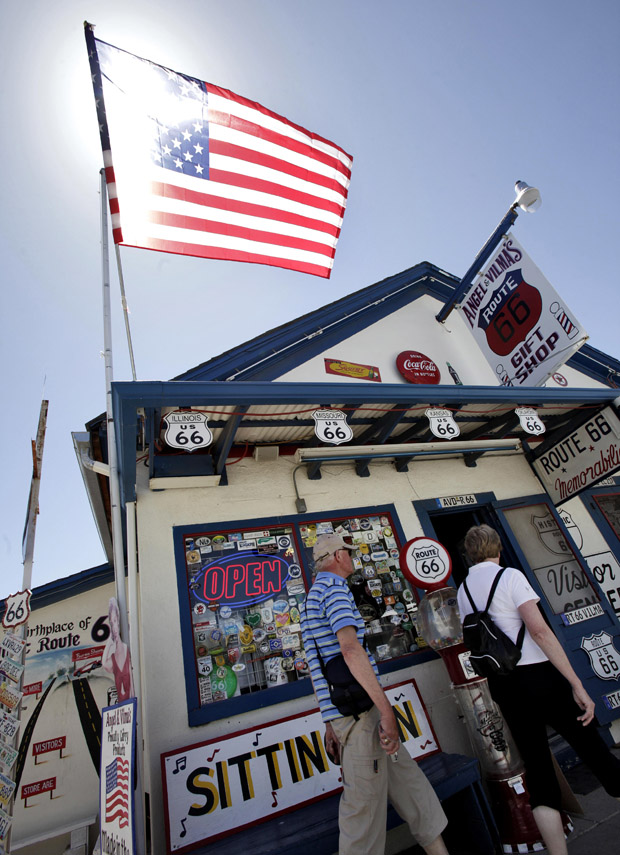A road trip – and hardships – on Route 66
By Robin Amer

A road trip – and hardships – on Route 66
By Robin Amer
Memorial Day marks the start of summer road trip season – maybe you’re reading this from your mobile device as you cruise down the highway. As you go, consider the story of Terri Ryburn, and the road trip that changed her life.
Ryburn grew up dirt-poor in a tar-paper shack in rural Illinois. Her carpenter father, Ray, had intense wanderlust, and in 1953 he announced he was moving the family to California.
Ray converted his Ford Model A truck into a makeshift camper, building up the flat bed with 2x4s and chicken wire, covering the top in gunny sacks and a canvas tarp. In went Terri, her pregnant mother, brothers Dave, Dick, Junior and Roger, and her father’s two black and tan coon hounds, Spic and Span. For their drive through the desert they tied canvas water bags to the running boards, and fire wood, so their mother could cook a hot meal when they stopped for the night. “We must have looked like the Joads from The Grapes of Wrath — or maybe those great opening credits from The Beverly Hillbillies,” Terri remembers. “The neighbors must have really thought my dad had lost his mind.”
The three-week, 2,500 mile cross-country journey proved to be unusual and in some ways traumatic for 5-year-old Terri. They traveled on Route 66, then a bumpy, curvaceous highway with one lane in each direction. The truck could only go 45 mph, so they often encountered angry motorists stuck behind them, unable to pass. They’d camp by the road every night and wake up covered in mosquito bites. Terri remembers spending one night sleeping on “someone’s shoe and a wet diaper all night.”
“The first time I ever heard the story The Princess and the Pea, I thought it had been written about me,” she says. “I thought, oh, someone really knows how much I suffered!”
Rest stops at the time had no bathrooms, so Terri and her brothers became experts in which gas stations offered the cleanest facilities. Phillips 66 became their favorite, “even before we learned they sent around a team of women in white gloves to inspect them,” she says.
They learned to love their road food, too. Breakfast was store-bought cinnamon rolls and milk. Lunch was a bologna sandwich. Dinner was more bologna, fried, plus fried potatoes from the 25-pound sack her mother had lugged cross country.
Even though the trip sounds impossibly harsh in some ways, it also left a positive mark: Today she has a PhD in history and a lasting love for Route 66. So much so that in 2007 she purchased a Tudor-revival style 1930s gas station along the highway in her home town of Normal, Ill., which she is working to restore and remodel into a visitor center, gift shop, bed and breakfast and restaurant.
Plus, as every weary traveler knows, there’s joy in the destination. Ryburn remembers clearly the day her family pulled into California. They spent the night in the parking lot of a gas station before driving past the Santa Monica pier to the beach. In the audio above Ryburn describes that much anticipated moment of arrival.
Dynamic Range showcases hidden gems unearthed from Chicago Amplified’s vast archive of public events and appears on weekends. Terri Ryburn spoke at an event presented by Culinary Historians of Chicago in April. Click here to hear the event in its entirety.